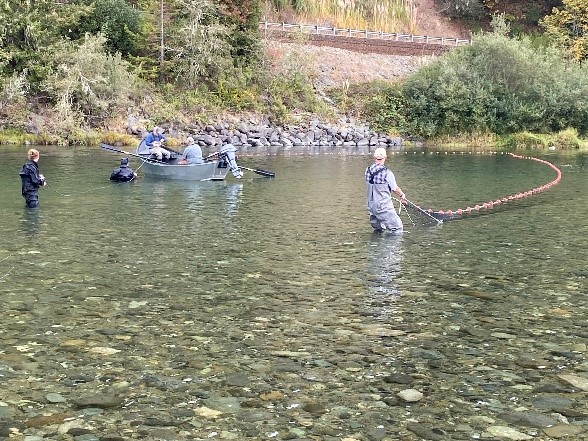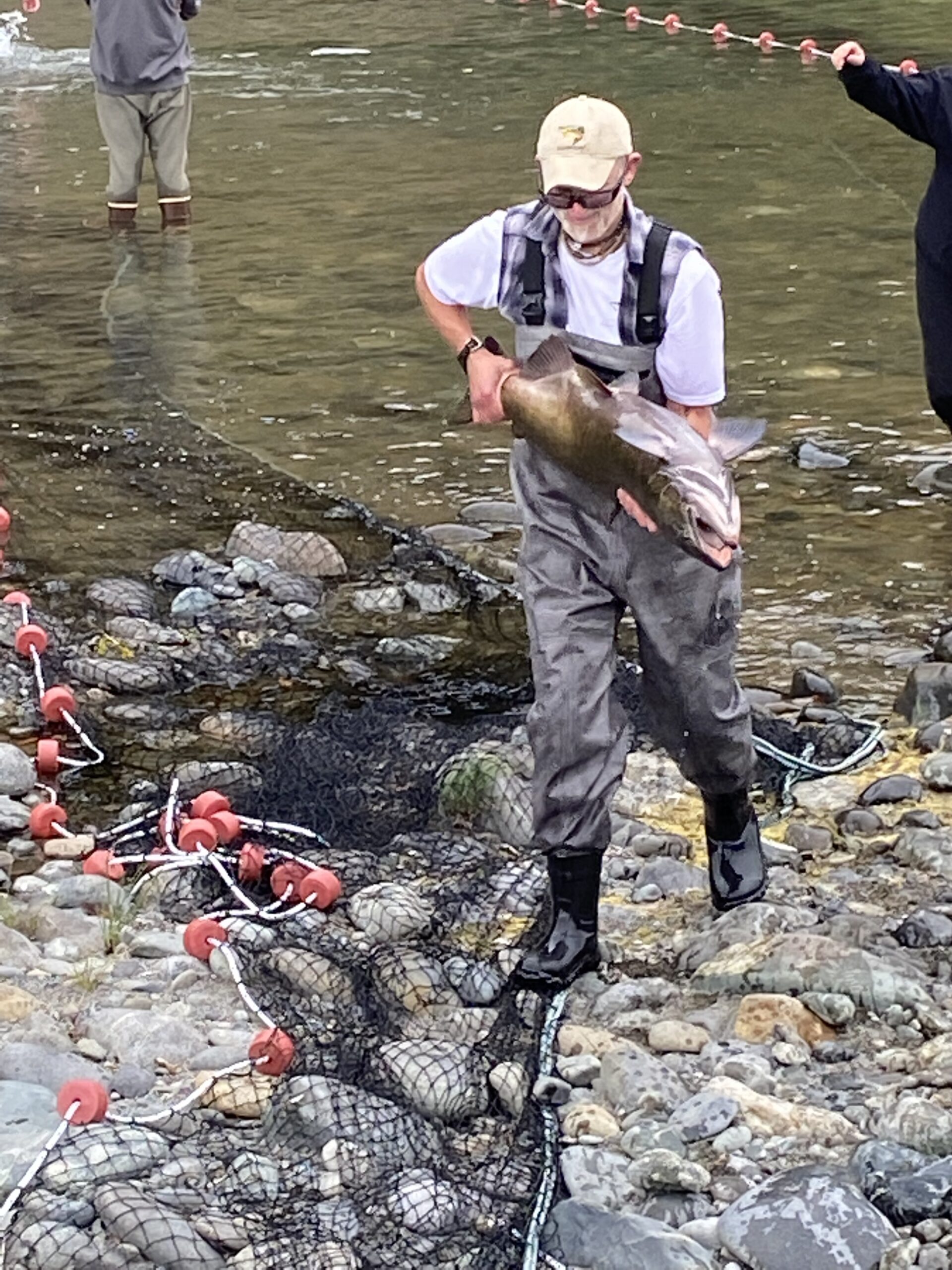The Rowdy Creek Fish Hatchery (RCFH), in partnership with the Tolowa Dee-ni’ Nation (TDN), completed two mainstem Smith River Chinook Salmon broodstock collection events October 21st and October 28th. Broodstock are the adult fish collected from the wild and spawned in the hatchery to provide the facility with eggs that are hatched and reared for release. TDN and RCFH staff deployed a 300-foot seine net, designed with 2” mesh to prevent fish entanglement and equipped with a lead and float line to keep the net upright in the river. The net is deployed by boat near the river bank and stretched across the channel, and then downstream to encircle fish and is gently pulled toward shore by staff. Fish remain in the net until they are removed by staff, each fish is identified to species and sex and then checked for an adipose clip to determine whether the fish is of wild or hatchery origin. Fish are then released unless selected for hatchery broodstock.
On Friday, October 21st, the seine was deployed by staff just upstream of the Water Tower, temporarily
capturing a total of 207 Chinook Salmon in one set of the net. Of the 207 Chinook captured, sixteen were selected for use as hatchery broodstock and were transported by live-well trailer to Rowdy Creek Fish Hatchery, where they will be held until ready to spawn. During the second event on Friday, October 28th, 315 Chinook were captured in two sets of the seine net at the same location and a total of 21 adults were selected for hatchery broodstock and transported to RCFH.

The hatchery has previously obtained broodstock by trapping fish migrating up Rowdy Creek using the facility’s trap and fish ladder. This means that for decades, only Chinook and steelhead migrating up Rowdy and Dominie Creeks have been used to breed fish at the hatchery—and that the year’s production is determined by how many fish are captured at the trap. Propagating broodstock collected from the mainstem Smith River will allow TDN and the hatchery to produce more, and higher-quality, fish with genetic diversity more representative of the whole watershed. This same technique is used by the Oregon Department of Fish and Wildlife to collect broodstock from the Chetco River.
RCFH and TDN are also working to improve broodstock collection for wild steelhead this winter. Steelhead will be collected from the mainstem Smith River by a small number of volunteer anglers who will donate fish caught by hook-and-line to the hatchery for use as broodstock. This method is also used on the Chetco and the Mad Rivers and will help the hatchery by increasing the number of broodstock available for spawning as well as integrating the genetics of naturally-produced individuals into hatchery production.
Seining for broodstock collection will continue until collection goals are met, or until fall rain creates prohibitive river conditions. Staff will provide updates to the community on progress and public viewing opportunities through the Rowdy Creek Fish Hatchery Facebook page. Rowdy Creek Fish Hatchery is a non-profit organization and relies on community fundraising to operate—please support Rowdy Creek Fish Hatchery’s ongoing operation and efforts to increase production at the facility by attending the Rowdy Creek Fish Hatchery Annual Fundraiser Dinner and Auction on November 12 at the Lucky 7 Tolowa Event Center—tickets are available at www.rowdycreek.org!

